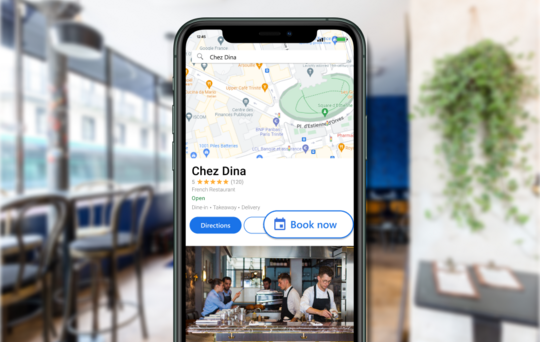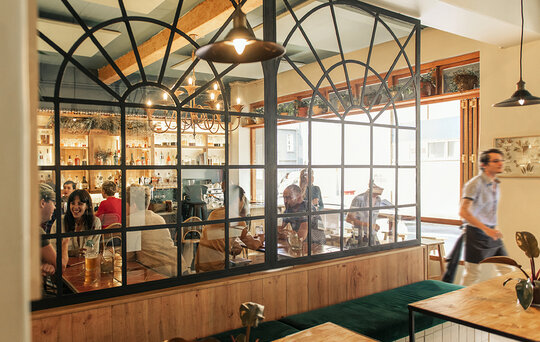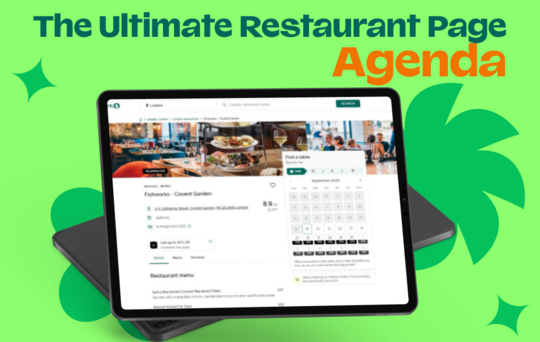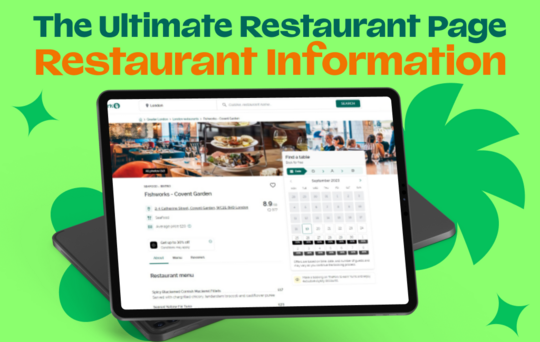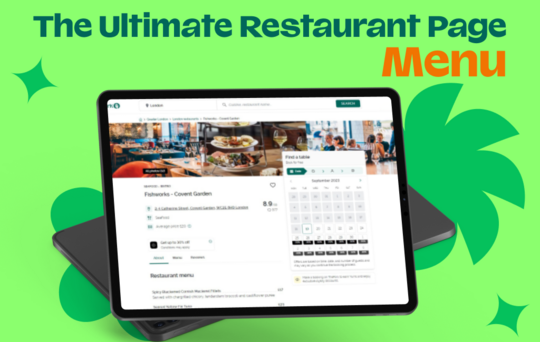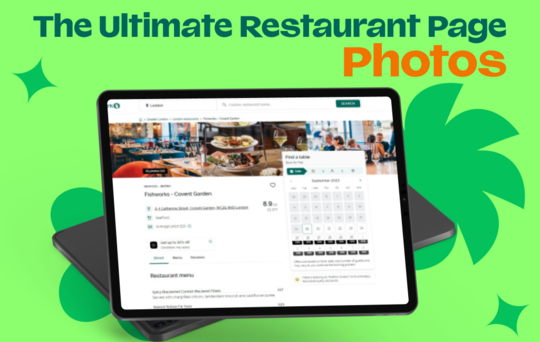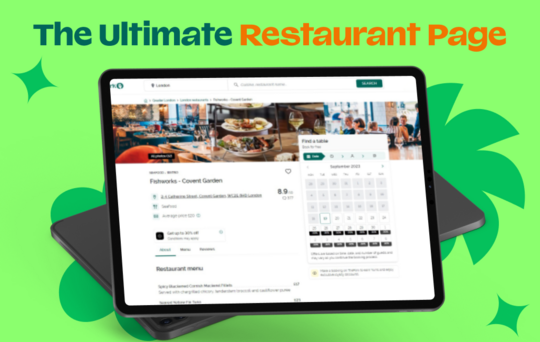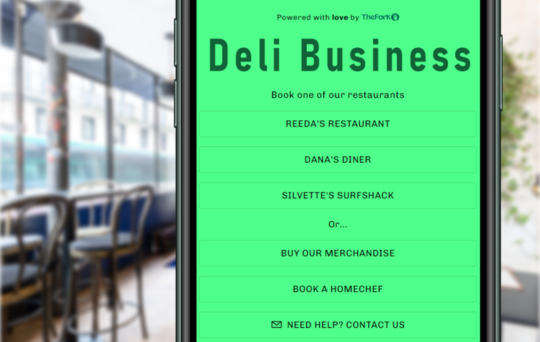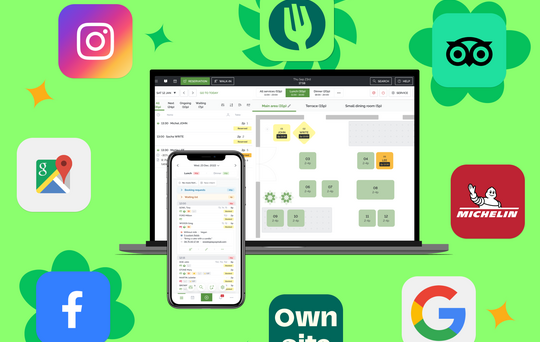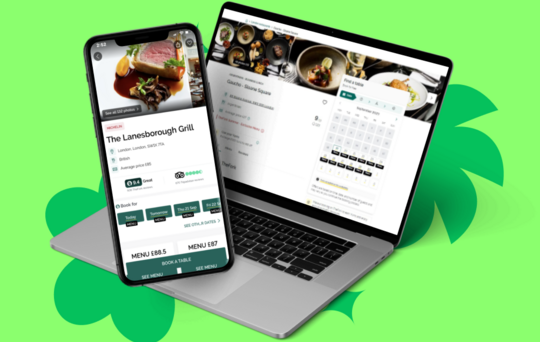Series: Crafting the Ultimate Restaurant Page: Restaurant Reviews
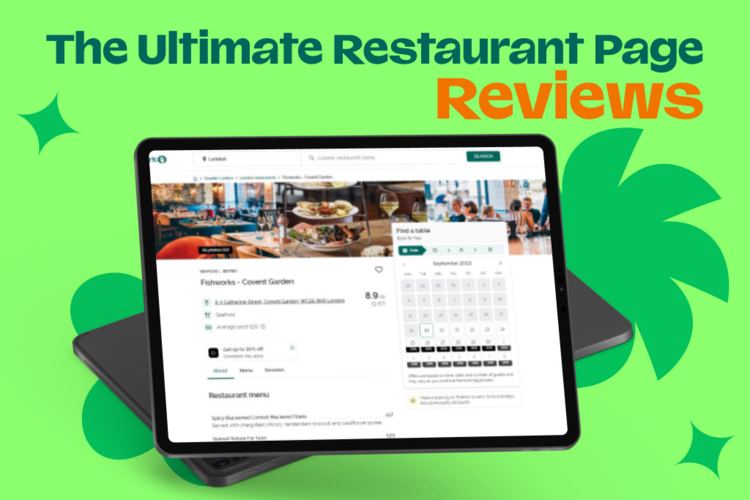
- • Why reviews matter for your restaurant's success
- • Best practices for encouraging more restaurant reviews on TheFork
- • How to turn negative restaurant reviews into positive outcomes
- • Try TheFork Manager today
- • Where to Find and Analyse Reviews
- • How Restaurant Reviews Work on TheFork
- • Effective strategies for responding to customer reviews
- • Review Photography: A Visual Delight
- • Up next
- • Empty tables and ever-increasing costs?
In this instalment of our series ‘Crafting the Ultimate Restuarant Page on TheFork’, we've reached the final destination – reviews. Most diners today rely on restaurant reviews to guide their next dining adventure. Therefore, it's important that you're not only aware of what's being said about your business online but also taking steps to ensure your reviews are nothing short of excellent. How? You’ll know all about it once you’ve finished reading this last piece in the series.
Find the rest of our series here:
Why reviews matter for your restaurant's success
Diners searching for the perfect restaurant experience naturally have certain expectations and preferences, and often turn to food reviews to guide their decisions. The value of online reviews goes beyond just feedback; they’re a reflection of the overall experience your restaurant provides and the best possible advertisement for your business.
Here at TheFork, users receive review invitations within a few hours of their meal. This means that only those who have actually visited your restaurant can leave a review. This way, the credibility and reliability of your reviews are guaranteed, which is vital to your potential guests and to you.
Best practices for encouraging more restaurant reviews on TheFork
Encouraging customers to leave reviews is a crucial skill to train your front-of-house staff in. There are various ways to subtly encourage diners to give feedback, including offering a small incentive, like a free drink or discount on their next visit. Aside from asking customers to review you directly, the best method for securing excellent reviews for your restaurant is to ensure excellent standards of service throughout their visit. Remember: an excellent restaurant experience is the best form of marketing and will encourage diners to respond favourably, making them want to leave positive reviews.
Another effective strategy is to leverage social media platforms as a tool for interacting with customers and building a loyal following. Customers who stay engaged with posts and activity on your accounts are far more likely to share their experiences online after dining at your establishment.
How to turn negative restaurant reviews into positive outcomes
Although receiving a negative review can feel incredibly disheartening, fear not! They can also serve an ulterior purpose when put to good use. From setback to opportunity, taking note of negative feedback and acting on it can improve your customer service in the long term, strengthen customer relations, and improve the brand’s image.
For example, if a wearied customer complains about slow service, the best course of action is to immediately address this feedback by apologising, explaining any mitigating circumstances, like an unusually busy Tuesday night, and then attempting to offer a solution. This could come in the form of immediately producing the diner’s food, but it could also be a small discount or a free drink while they wait.
Through well-managed responses, competent service staff can turn negative experiences into future positive reviews by showcasing their politeness and proactivity in resolving any issue at hand, turning their establishments into top-rated restaurants in no time.
Try TheFork Manager today
Where to Find and Analyse Reviews
With well over 20 million reviews, TheFork is the go-to restaurant review site for many diners. With a restaurant page on TheFork, you can easily access your food’s reviews. Simply click on the lightbulb icon (Insights) in the menu on the left of TheFork Manager, then click on "Reviews" (or simply click here to go there now). For more in-depth statistics in TheFork Manager, click here (Insights > Statistics > Reviews, from the top menu).
These reviews should help you learn from the experiences of your diners’. What are customers commenting on? Are there noticeable shifts in your ratings, and are particular aspects getting noticed? Is there negative feedback that, even if you disagree, is understandable? Asking all of these questions will help you make improvements and refine your service.
Sharing the feedback you find with your team, whether positive or negative, is crucial. Positive feedback can be a pat on the back, boosting morale. Negative feedback, on the other hand, can serve as a learning opportunity.
How Restaurant Reviews Work on TheFork
One valuable tip for gaining more reviews is to make a point of noticing guests who book through TheFork and kindly asking them to leave a review through the email invitation that they will receive that same day. Fresh reviews tend to be perceived as more reliable, making them even more impactful when potential diners are considering making a booking.
The average rating of your restaurant is visible to diners when they browse the search results page. This rating significantly influences the first impression a diner has of your restaurant. The restaurant rating is an average of all user ratings from the past year, calculated through compiled data. This rating reflects the overall dining experience at your restaurant.
Effective strategies for responding to customer reviews
Some say feedback is a gift. That’s why it’s important to handle it properly! Best practice dictates that you should reply to all of your reviews, good or bad, for maximum engagement. You can do so from your review overview on TheFork, to make sure that guests with feedback to share feel seen and respected. Plus, in case you get a less than gleaming review, it's an opportunity to add context for future guests to read.
Here are three of the most important tips for responding to your guests:
- Be Swift and Kind: It's important to reply promptly and with kindness. Acknowledge feedback, whether positive or negative and show your appreciation for taking the time to leave a review.
- Emphasise the Positive: Regardless of the nature of the review, focus on the positive aspects. Highlight what makes your restaurant special and thank the diner for choosing you.
- In Case of Negatives: When responding to negative reviews, take the time to do some research and provide well-founded arguments. Show that you genuinely care about the diner's experience and are open to making amends.
Leveraging Positive Reviews
Don’t forget to market your best reviews. Take screenshots of your TheFork page featuring all those glowing 9’s and 10’s and share them to your social media accounts. This can help you grab more attention and bookings, further enhancing your restaurant's reputation. If you also have a TheFork booking button right on your profile, the effort necessary to book is minimised.
Review Photography: A Visual Delight
Diners can include photos when they leave a review, providing an authentic window into the dining experience at your restaurant. Encouraging users who book through TheFork to include photos when leaving a review will enhance your profile with captivating content, making it even more appealing to potential diners.
When it comes to running a successful restaurant page on TheFork or any other online platform, reviews are crucial. They provide valuable insights, influence decision-making, and reflect your restaurant's identity. Therefore, make a habit of listening, learning, and responding. The impact can be profound, attracting more diners and elevating your restaurant's standing in the culinary sphere.
In the quest to craft the ultimate restaurant page, reviews serve as the golden thread weaving the story of your restaurant's success. Nurture them, embrace them, and get ready to watch your restaurant shine.
Up next
Find our other articles in the "Crafting the Ultimate Restaurant Page on TheFork" series here:
Don't have a restaurant page on TheFork yet? We'll help you get published here.
Empty tables and ever-increasing costs?
- Why reviews matter for your restaurant's success
- Best practices for encouraging more restaurant reviews on TheFork
- How to turn negative restaurant reviews into positive outcomes
- Try TheFork Manager today
- Where to Find and Analyse Reviews
- How Restaurant Reviews Work on TheFork
- Effective strategies for responding to customer reviews
- Review Photography: A Visual Delight
- Up next
- Empty tables and ever-increasing costs?




